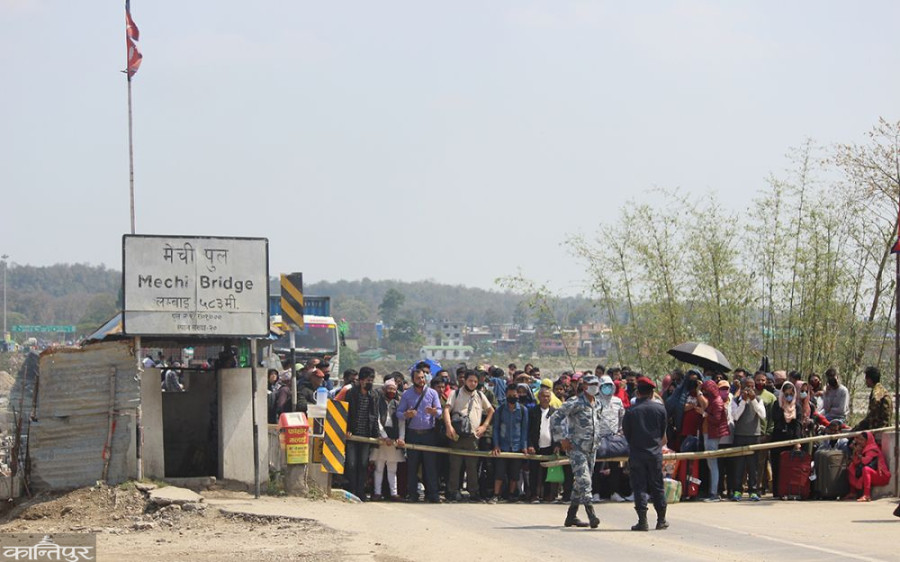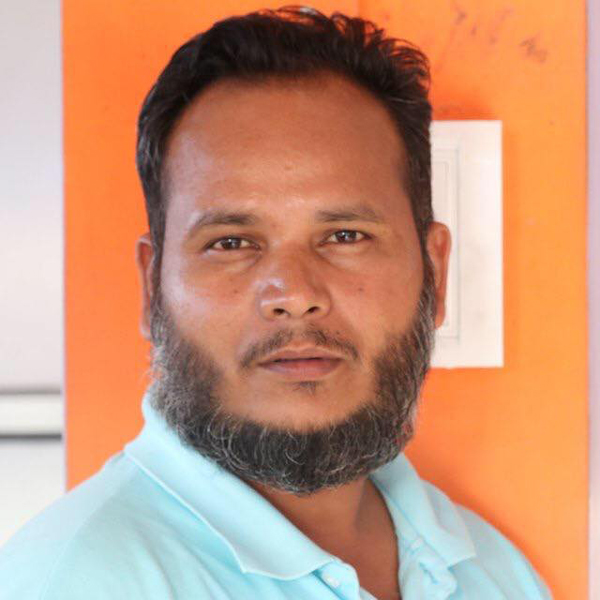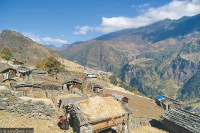National
Following Cabinet’s decision to close borders, hundreds of Nepalis faced a long day on Monday at the borders
Most of the returnees claimed of having no information about the restriction imposed on crossing into Nepal since most of them had travelled a long distance to reach various border points.
Parbat Portel
On Monday, hundreds of Nepalis, returning home from various parts of India, waited on the other side of the Mechi bridge in Kakadbhitta to be allowed to enter Nepal. They protested against the government’s decision to seal all borders effective Monday onwards.
However, by late evening, Province 1 Chief Minister Sherdhan Rai directed the local government and administration to allow the Nepalis to enter Nepal. Rai said that he has informed the federal government about the entry of Nepali passengers from India from the border point.
“The people who entered the country through the Kakadbhitta border have been advised by the local administration to observe self-isolation for seven days,” said Deputy Superintendent of Police Rajendra Pokhrel of Area Police Office, Kakadbhitta.
A Cabinet meeting on Sunday had decided to close down all borders with India and China for a week, effective from 10am Monday as a precaution against the spread of Covid-19.
Despite the border closure, the Indian border forces had allowed nearly 300 Nepalis to cross the Mechi bridge on Monday. When the incoming Nepalis— a majority of whom were students and migrant workers— were stopped by the border security forces in Kakadbhitta, the situation turned tense. They were finally allowed in at the instruction of Chief Minister Rai.
DSP Rajendra Pokhrel of the Area Police Office said the authorities concerned have not taken any steps to quarantine the people entering the country amid coronavirus outbreak.
“They should have stayed in quarantine in India itself. But now that they are here, they should be quarantined. Self-isolation alone is not going to work,” Pokhrel said.
In western Nepal, along the Sunauli border, a large number of Nepali workers returning from Indian cities like Kanpur, Gorakhpur, Benaras, Mumbai, Chennai, New Delhi, among others, were also stopped for nearly eight hours before they were finally allowed to enter.
Most of the returnees claimed that they did not know about the travel restrictions since they had travelled a long distance across India to reach Sunauli.
“The authorities can run a medical check on us. Put us in quarantine if necessary. But they can’t keep us here at the border,” said Tek Bahadur Nepali, who was returning from Mumbai.
Nepali and the others were allowed to enter the country at around 6pm.
Chief District Officer of Rupandehi Mahadev Pantha said the details of incoming Nepalis were recorded before letting them in the country.
"As we don't have a facility to quarantine all of them, we have recorded their details and allowed them entry on humanitarian ground. The details will be sent to the concerned district administration offices so that every individual could be traced if needed," Pantha said.
Meanwhile, the government’s decision to build an isolation ward in Butwal, 25-km from Nepal-India border, is yet to come to fruition.
Eateries and local shops along the border were also closed on Monday leaving most returnees without basic provisions.
Although public movement has been prohibited along the Sunauli border, the import of goods has continued. Before the border seal went into effect, 867 had entered Nepal via Sunali border.
A group of 20 Nepalis on their way to Nepal via Belhi in Saptari also faced similar confusion as they too were stopped at the Belhi customs point in Tilathi Koiladi Rural Municipality. They were returning from Delhi, Haryana and Punjab in India.
(Madhav Dhungana from Bhairawaha and Abdesh Kumar Jha from Saptari contributed reporting)




 14.24°C Kathmandu
14.24°C Kathmandu













